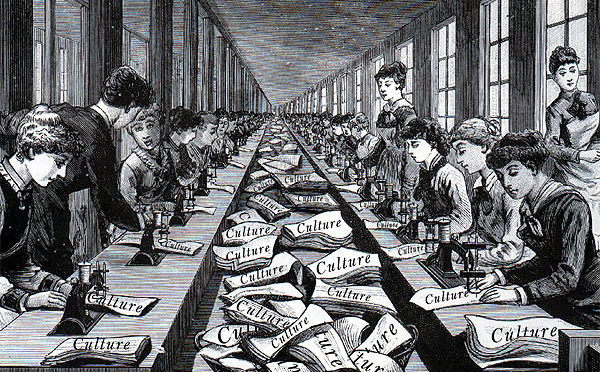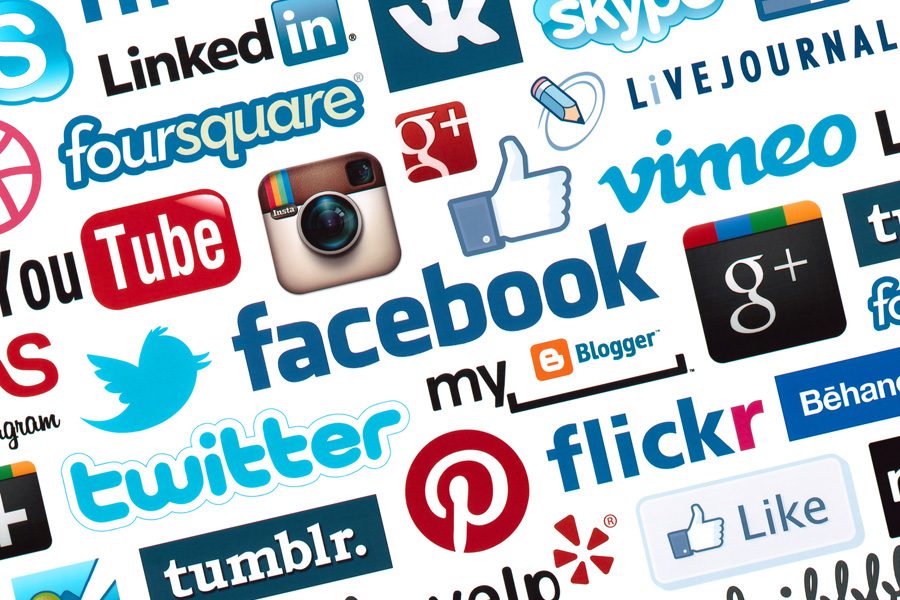Introduction :
Mass culture, as a new cultural form that comes into being with culture entering the industrial mass production and consumption market, is widely spread by traditional media of communication. Mass culture is the product of the culture industry. This mode of transmission which cultivates and stimulates the public to accept single information and consume desire makes more and more people lose their subjective initiative and gradually become more and more dependent on mass culture and become one-sided people without independent thoughts. However, with the progress of science and technology, the rise of new media, particularly through platforms like ‘we-media’, has significantly influenced the cultural industry. It empowers individuals to express views, create content, and disseminate ideas, reshaping the dynamics of mass culture dissemination and development.

The characteristics of ‘we-media’ :
1. Civilianization
In the era of “we media”, everyone has the right to create their own media accounts, freely express their views on social platforms, pass on life, and create social networks. Deng (2015) stated that the transformation of society can’t leave these new and diverse forms of information communication. In the ‘we-media’ era, everyone has the right to talk and everyone will be the publisher, common people are also given more rights.
2. Innovativeness and personalization
The products of we-media are often original by the creators and often stimulate people’s innovative spirit. People can choose different types of “we media” to create their own works. Compared with the mainstream media that only spread mass culture before, the emergence of “we media” makes people’s thoughts no longer single. Take China’s we-media platform—— WeChat as an example. The popularity of WeChat allows everyone to show their diverse personalities (McCloskey,2017). By sharing their interests and life in the moment, it can help others understand the communicator better. What’s more, some people will also choose to spread their opinions to more people in the WeChat public accounts. It can be said that the era of ‘we-media’ has well-cultivated people’s ability of personalized expression.
3. Low threshold, easy to operate
On many ‘we-media’ platforms, people generally only need to register a simple application, and they can publish text, video, audio, etc., according to the templates and guidelines available on the platform.
4. Strong interaction and fast spread
It has high timeliness and can spread information quickly.
The impact of the ‘We-media’ era on the cultural industry :

The cultural Industry is a kind of large-scale, commercialized, and single-product production. The emergence of this concept makes people lose the ability to think and create independently. It seems that everyone has become a one-sided person and blindly accepts mass culture. However, the emergence of the ‘we-media’ era makes this concept no longer used today, everyone can be a communicator and creator, and people will no longer be imprisoned by a unified culture.
And it must be mentioned that the dissemination of mass culture is still necessary. Because in many cases, the authenticity of information transmitted by ‘we-media’ still needs to be studied by people, in my view, media fusion to spread mass culture should be an inevitable trend of media development.
Reference list
Wikipedia. (2023). Mass media. [online] Available from: https://en.wikipedia.org/wiki/Mass_media#Purposes
Deng, Z et al(2015)‘Collaborative planning in the new media age: The Dafo Temple controversy, China’, Cities, Volume 45(June 2015), pp.41-45.
www.linkedin.com. (n.d.). The Emerging of ‘Self-Media’ in China – Discovering potentials for ‘Self-Media’ in the US. [online] Available at: https://www.linkedin.com/pulse/emerging-self-media-china-discovering-potentials-us-betsy-mccloskey.
Wikipedia Contributors (2019). Culture industry. [online] Wikipedia. Available from: https://en.wikipedia.org/wiki/Culture_industry.


Your blog inspired me!
Hello Anting! Through your blog, I’ve learned that the culture industry is a large-scale, commercialized, single-product production that imprisons people’s minds and deprives them of the ability to think independently. Your point about the individual’s ability to create and disseminate in the age of “we media” breaking down the boundaries of the traditional culture industry is a very good one! It’s true that in today’s society, the internet has made it possible for everyone to be a communicator, and people can easily post their content and opinions on platforms such as Instagram and TikTok to spread information, which is a very good thing because people’s minds are not confined by traditions and they can learn more information. However, I think it is because of this ‘freedom’ on the internet today that there are many drawbacks to the exchange of information.
Firstly, because everyone can easily pass information on the internet, the cost and price of lying have dropped greatly, and it is very easy for a lot of false or bad information to appear on the internet, which may also have a bad effect on society. Secondly, we can also easily expose our information on the Internet, and we may expose our privacy while passing on information, which may be exploited by unscrupulous elements to commit Internet fraud and other illegal acts.
On the whole, I think the advantages of the “we media” era outweigh the disadvantages. The important thing is that people should be careful with media platforms and online information, be aware of false or harmful information on the internet, and also protect their privacy.